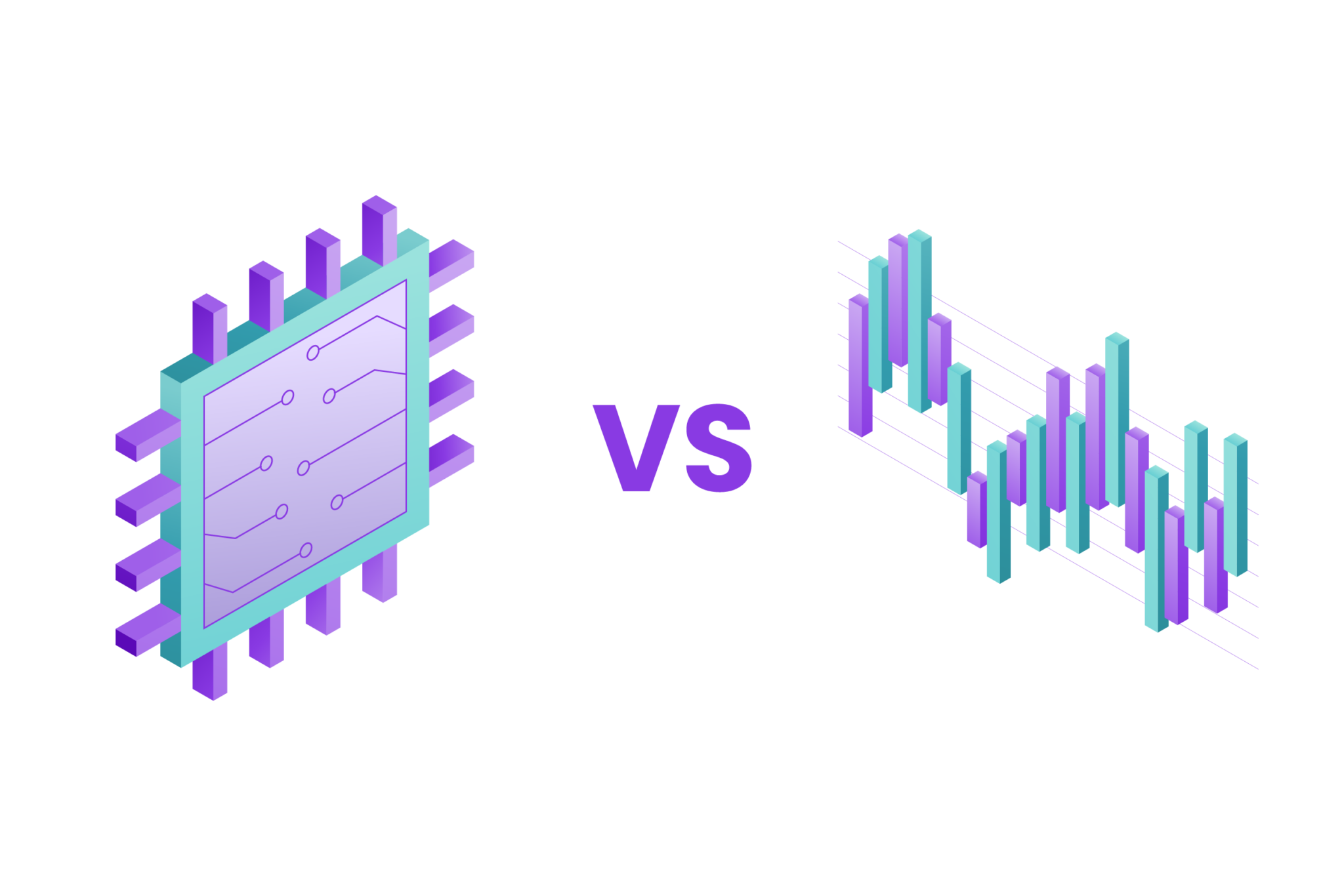
The world of finance can be likened to a vast, intricate marketplace where individuals and institutions engage in the buying and selling of various financial assets, such as stocks, bonds, and commodities. It’s a bustling hub of economic activity, and at the heart of this dynamic ecosystem are market makers, the unsung heroes who play a crucial role in upholding its stability and ensuring its efficient operation.
In this comprehensive article, we’ll embark on a journey deep into the fascinating realm of stock market makers. We’ll explore their multifaceted functions, delve into the reasons why they hold such a significant position in today’s financial markets, and shed light on the regulatory framework that guides and governs their every move. By the end of this exploration, you’ll gain a profound understanding of how these stock market makers act as the architects of liquidity, the guardians of market stability, and the facilitators of seamless trading experiences.
What is a Stock Market Maker?

At its essence, a stock market maker is a central player within the financial ecosystem, whether it’s on a traditional exchange floor or in modern electronic trading systems. This financial entity or individual specializes in ensuring that the gears of the stock market keep turning smoothly. However, the functions of a stock market maker are various.
- Facilitating Trading
The primary and fundamental role of a stock market maker is to facilitate trading in the stock market. They act as intermediaries between buyers and sellers, connecting these two groups seamlessly. Without market makers, individual investors or institutions would need to find each other directly to execute trades, which could be cumbersome and inefficient.
- Continuous Quoting
Stock market makers continuously provide bid and ask prices for specific securities during market hours. The bid price represents the maximum price buyers are willing to pay for a security, while the ask price is the minimum price at which sellers are willing to sell. This constant quoting ensures that there are always prices available for traders, promoting a smooth flow of transactions.
- Creating Liquidity
Liquidity is the lifeblood of any financial market. Stock market makers stand ready to buy and sell securities at all times. This commitment to being both a buyer and a seller, often called “making a market,” contributes to market liquidity. In essence, they ensure that there is a market for securities, even when there are fewer buyers or sellers in the market.
- Narrowing Bid-Ask Spreads
Stock market makers aim to profit from the spread, which is the difference between the bid and ask prices. They continually adjust these prices to minimize the spread, benefiting traders by offering more competitive execution prices. This narrowing of spreads is particularly important for investors, as it reduces the cost of trading.
- Market Stability
Stock market makers play a significant role in stabilizing the stock market. When there are sudden surges in buying or selling activity, market makers can step in to absorb these large orders, preventing extreme price fluctuations. Their ability to provide stability during volatile market conditions is crucial for investor confidence.
- Market Surveillance
Beyond their role as intermediaries, stock market makers also act as vigilant overseers. They actively monitor the market for unusual or suspicious trading activity. This surveillance helps identify potential market manipulation or abusive trading practices, and market makers are obligated to report any such activities to regulatory authorities.
Market makers are the linchpins of the stock market, ensuring that it operates smoothly, efficiently, and with the utmost integrity. Their constant presence, continuous quoting, and commitment to maintaining liquidity make them indispensable components of financial markets, providing benefits to both individual and institutional investors.
Key Functions of Stock Market Makers

1. Providing Liquidity
One of the most fundamental functions of a stock market maker is to provide and maintain liquidity within the financial market. Liquidity can be thought of as the lifeblood of any trading ecosystem. It ensures that assets can be bought or sold promptly without causing significant price fluctuations. Market makers are like the ever-vigilant guardians of this vital liquidity. They stand ready, at all times, to step in and transact with buyers or sellers.
In essence, market makers help ensure that the market remains orderly and efficient, even during periods of low trading activity. Without their continuous presence, traders might struggle to find willing counterparties, and the market could become fragmented and less liquid, resulting in less favorable trading conditions for all participants.
2. Narrowing Bid-Ask Spreads
Stock market makers are not only facilitators but also astute profit-seekers. They aim to profit from the spread, which is the difference between the bid (the price at which buyers are willing to purchase) and the ask (the price at which sellers are willing to sell). This spread is essentially their compensation for providing liquidity and maintaining a liquid market.
What sets market makers apart is their continuous effort to narrow this spread. By tightening the bid-ask spread, they provide traders with more competitive execution prices. In doing so, they contribute to enhancing the efficiency of the market, making it more cost-effective for traders. This benefits not only large institutional investors but also individual retail investors, who can execute trades with reduced transaction costs.
3. Mitigating Price Volatility
Stock market makers often operate as stabilizing forces in financial markets. They have the unique capability to absorb large buy or sell orders without causing dramatic price swings. Imagine a scenario where a significant order suddenly floods the market—without market makers, this influx of orders could lead to extreme price fluctuations, causing chaos and uncertainty.
However, market makers can step in during such situations and match these large orders. By doing so, they help maintain market stability and prevent abrupt price swings. This function is particularly crucial in times of heightened market volatility or during major news events, when trading activity can surge dramatically.
Also Read: Market Maker Options: Definition and How They Make Money
4. Continuous Quoting
A fundamental requirement for stock market makers is to provide continuous quotes for the securities they cover during market hours. This means they are always “open for business,” ready to transact with buyers or sellers. This continuous quoting ensures that there is always a counterparty available for traders looking to buy or sell securities.
This seamlessness is essential for maintaining a fluid and efficient market. Traders can enter or exit positions quickly and with confidence, knowing that there will be a willing counterparty. It prevents the market from becoming illiquid, fragmented, or prone to sudden disruptions.
5. Market Surveillance
Beyond their core functions as facilitators of trading, stock market makers also serve as vigilant guardians of market integrity. They actively monitor the market for any unusual activity or trading patterns that may indicate potential market manipulation or abusive trading practices.
Market makers play a crucial role in identifying such anomalies and promptly reporting them to regulatory authorities. Their watchful eye helps maintain the fairness and transparency of the market, ensuring that it remains a level playing field for all participants.
Stock market makers are the linchpin of financial markets, performing multifaceted functions that go beyond mere intermediation. They provide liquidity, enhance trading efficiency, stabilize the market and uphold its integrity. Their continuous quoting and vigilant surveillance contribute to the seamless operation of the financial markets, benefiting all participants, from individual investors to large institutions.
Stock Market Maker vs. High-Frequency Trader

Stock Market Makers
Market makers are akin to the steady and reliable pillars of the financial market. Their primary focus is on providing liquidity, stabilizing prices, and facilitating trading. This means they continuously stand ready to buy or sell securities, regardless of market conditions. Their commitment to maintaining a liquid market often comes with a willingness to hold positions in securities for extended periods.
The essence of a market maker’s strategy lies in balancing supply and demand. They aim to bridge the gap between buyers and sellers, ensuring that trading can occur smoothly and efficiently. This role is particularly critical during times of market stress when large orders need to be absorbed without causing chaotic price swings.
Stock market makers are known for their patience and broader time horizons. They are not necessarily seeking quick profits from rapid price fluctuations but are more concerned with maintaining the market’s stability and facilitating orderly trading. Their profit margins typically come from the bid-ask spread, which they work to narrow, ultimately benefiting traders with better execution prices.
High-Frequency Traders (HFTs)
In contrast, high-frequency traders (HFTs) represent a different breed of market participants. Their approach to trading is characterized by its rapidity and volume. HFTs engage in high-frequency and algorithmic trading, executing a large number of trades in exceedingly short timeframes, often measured in milliseconds.
HFTs are primarily concerned with the microstructure of the market, focusing on the tiniest price differentials and exploiting short-term price movements. Their strategies are highly automated and rely heavily on complex algorithms and technology infrastructure to execute trades at lightning speed.
These traders are not necessarily interested in holding positions for extended periods. Instead, they seek to capitalize on the price discrepancies that arise within fractions of a second. Arbitrage opportunities, where they profit from price differences in different markets or between related securities, are a core part of their strategy.
While HFTs contribute to market efficiency by providing liquidity and reducing spreads through their high trading volumes, their trading activity can sometimes be criticized for contributing to market volatility or for creating an uneven playing field for traditional investors.
Regulation and Oversight of Stock Market Makers
Stock market makers, as integral cogs in this intricate system, shoulder significant responsibilities, which is why they operate under strict regulatory frameworks designed to uphold these core principles. In the United States, the Securities and Exchange Commission (SEC) and in the United Kingdom, the Financial Conduct Authority (FCA) stand as vigilant sentinels, overseeing and enforcing the rules that govern the activities of market makers. Let’s delve into the expansive realm of market maker regulation and the multifaceted roles of these regulatory bodies.
The Securities and Exchange Commission (SEC)
In the United States, the SEC is the chief regulatory authority overseeing the activities of market makers. Its mission extends far and wide, encompassing the preservation of fair and efficient markets, the facilitation of capital formation, and the safeguarding of investor interests. To achieve these objectives, the SEC formulates, implements, and enforces a robust set of regulations specifically tailored to guide market maker behavior.
The SEC’s regulatory purview covers a wide spectrum of stock market makers activities. It includes the monitoring of compliance with rules pertaining to quoting obligations, which dictate how market makers quote bid and ask prices. These rules are crucial in maintaining market transparency and ensuring that investors receive fair and competitive prices for their trades.
Furthermore, the SEC remains vigilant about preventing manipulative practices that could undermine market integrity. It investigates and takes action against market participants engaged in activities such as price manipulation, insider trading, or fraudulent activities. By doing so, the SEC plays a pivotal role in preserving the trust and confidence of investors in the financial markets.
Also Read: Market Making: Strategies and Techniques (August 2023)
The Financial Conduct Authority (FCA)
Across the Atlantic, in the United Kingdom, the Financial Conduct Authority (FCA) assumes a parallel role in regulating and overseeing stock market makers. The FCA’s mandate is multifaceted, ranging from the promotion of market integrity and consumer protection to the fostering of competition in the financial sector. Market makers operating within the UK fall under the purview of the FCA’s comprehensive regulatory framework.
The FCA closely scrutinizes market maker activities to ensure compliance with established rules and standards. Of particular importance is the concept of best execution. Market makers are obligated to execute client orders on terms most favorable to the client. This ensures that investors receive the best possible deal, reinforcing the FCA’s commitment to investor protection.
Conclusion
Stock market makers emerge as the often-underappreciated linchpins, tirelessly toiling behind the scenes to maintain the market’s vitality and efficiency. Their multifaceted functions encompass the provision of liquidity, the stabilization of prices, and the facilitation of seamless trading. As intermediaries bridging the gap between buyers and sellers, they are the very gears that keep the financial market machinery in motion.
As the silent forces ensuring liquidity, stability, and efficiency, market makers stand as pillars supporting the very foundation of the financial world. Their impact, often unseen but profoundly felt, underscores the dynamic and interconnected nature of modern stock markets. Appreciating the nuanced role of stock market makers enriches our understanding of the intricate dance that defines the ebb and flow of financial markets.
Disclaimer: The information provided by Quant Matter in this article is intended for general informational purposes and does not reflect the company’s opinion. It is not intended as investment advice or a recommendation. Readers are strongly advised to conduct their own thorough research and consult with a qualified financial advisor before making any financial decisions.

I craft stories that make complex ideas clear. I simplify the blend of data science, machine learning, and crypto trading, showcasing how advanced tech and quantitative models analyze data for informed trading choices. Join me in exploring the realm of quantitative trading, where my narratives make intricate concepts easy to grasp.
- Alifia Berizkyhttps://quantmatter.com/author/alifia-berizky/
- Alifia Berizkyhttps://quantmatter.com/author/alifia-berizky/
- Alifia Berizkyhttps://quantmatter.com/author/alifia-berizky/
- Alifia Berizkyhttps://quantmatter.com/author/alifia-berizky/
